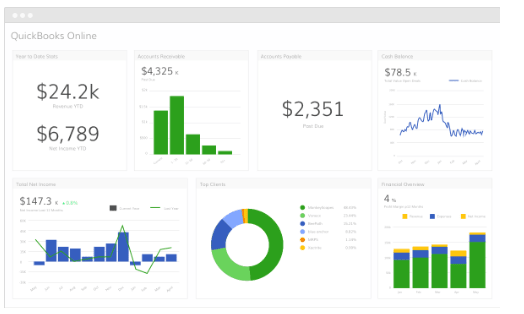
A retainer fee agreement, on the other hand, is a down payment of the costs of the services being purchased. A client who pays a retainer to an attorney does so with the understanding that they are what is a retainer fee purchasing that attorney’s services. Retainer fees cover at least the initial costs of the services to be rendered. Before committing to a retainer agreement, several factors must be deliberated.
- While both are upfront payments, a retainer focuses on services, and a deposit secures a transaction.
- A lot of people have the idea that starting a consulting business is unstable.
- For instance, some fee agreements will specify that the retainer fee is immediately collected in full to secure the services of an attorney.
- This fee, given upfront, acts as a reservation, ensuring that the professional prioritizes the client’s needs over others.
- This is why the Pay for Access model works best when you already have an existing relationship with your client.
- I have been through the full life cycle from boot strap to seed investors to large funds-public companies to successful exit.
- This type of retainer functions as a safety net of sorts, because the retainer itself is never depleted.
How to Become a Successful Consultant Course
- In short, it is possible to recover attorney’s fees in a civil lawsuit, including the initial retainer fee paid to secure an attorney’s services.
- A retainer fee is money paid to ensure that a professional will provide services to you.
- Include with the agreement that your client may terminate the work at any period during the service.
- Berkson’s work can be found in such publications as The Energy Law Journal, Human Resource Management Review and Personnel Psychology.
- With this type of lawyer retainer, the attorney does not get to keep the money until they actually provide the services you are requesting.
- However, regardless of the outcome, attorneys must be able to bill their time for their work and their expertise.
- When the security retainer is paid, it goes into a trust, and not to the lawyer.
Once the agreement is terminated, the client may claim the balance of the retainer fee after paying the attorney an amount equivalent to the number of hours worked. Therefore, clients should clarify with the attorney if they notice a “non-refundable” clause regarding retainer fees in the agreement. A ‘per retainer fee’ is an upfront payment to secure a professional’s ongoing services, often billed monthly, ensuring their availability for future work. Lawyers typically charge retainer fees ranging from $1,000 to $5,000, depending on their experience, location, and case complexity. The specifics are outlined in a retainer agreement, which may be refundable or non-refundable. For example, a big corporation may put a specific law firm they wish to work with “on retainer” so they can call on the firm as needed and ensure its availability if a legal issue arises.
Who Benefits Most From Utilizing a Retainer Agreement?
Retainer fee structures benefit professionals by generating stable, long-term, and improved client relationships. When a professional’s work is client-centered, retainer fees allow providers to toggle between many different clients and distinguish their billing for each. A retainer fee is a pre-established amount paid by a client to secure the expertise and time of a professional or consultant for a designated period. This fee, given upfront, acts as a reservation, ensuring that the professional prioritizes the client’s needs over others. There are different financial factors that can be wrapped into a retainer fee. Processing fees, document fees, and materials required for the service can be included in the retainer fee to cover those charges.
Is a lawyer retainer worth it?
You may be charged an additional fee if unexpected and unforeseen complications arise. Cases that involve multiple court appearances and document filings are often charged on a retainer fee basis. The attorney should give you a written retainer agreement, explaining how they will charge and what will happen if your retainer fee is reduced to zero before the case is completed.

If any of the unearned retainers are left in the account after the work is done, it’s usually refunded to the client unless a non-refundable agreement was signed. It starts with gaining a solid understanding of each legal billing model. In this blog, we’ll provide a comprehensive look at retainer fees—covering the types available, https://www.bookstime.com/ how they work, and the benefits they bring clients and lawyers alike. A retainer fee is an upfront payment to secure the services of a lawyer, consultant, freelancer, or other professional. A retainer fee is most commonly paid to third parties that the payer has engaged to perform a specific action on their behalf.
However, in a personal injury case, the attorney may incur expenses while they prosecute the case to its conclusion. Additionally, they may want to collect a retainer fee at the start of the case to pay those expenses. The attorney would use the retainer fee paid by their client to pay the expenses of prosecuting the case. It’s essentially a written document that outlines the terms of engagement between a client and a lawyer.
Once the case has started, the attorney can charge any costs against the retainer fee instead of asking the client to provide extra funds. A retainer fee compensates the attorney for his expertise and reputation. When hiring an attorney, clients choose an attorney with a good reputation in the legal profession to help them win a case. Choosing the right attorney can sometimes help the client obtain a settlement without even going to court. For that reason, you may want to consider offering a combination of fee structures in addition to retainer fees—including hourly billing, flat rates, and contingency fees. When you pay a general retainer, you still must pay separately for any legal services you actually need.

To calculate the retainer fee, determine the number of hours that it will take to finish the project or provide the service. It doesn’t need to be exact because you can always charge for more hours once you’ve crossed the set amount of time. To help calculate your fee, you’ll need to set an hourly rate for the type of work provided.
What Is a Fee Agreement?
- Berkson is a dedicated, practical, and detail-oriented attorney licensed to practice in every state court of Oklahoma and the United States Northern and Eastern District Courts.
- This type of retainer typically only appears where the lawyer or firm has special talents or connections with the client.
- Further, the client may enter into a retainership agreement with the lawyer to engage himself in the future whenever any legal issues are faced.
- A retainer fee is most commonly paid to third parties that the payer has engaged to perform a specific action on their behalf.
- When you start and run your own business, you have control, the power to achieve what you want.
The types of service provided will determine the expectation of payment. For guaranteed service, the fee is paid upfront—but if the service is not completed, the fee is refunded to the client. Typically, professionals that use retainer fee agreements bill their work from a base hourly rate. The retainer fee agreement allows the professional to set aside an allotted amount of time towards a matter and have a specific fund to bill their time towards for the matter.
